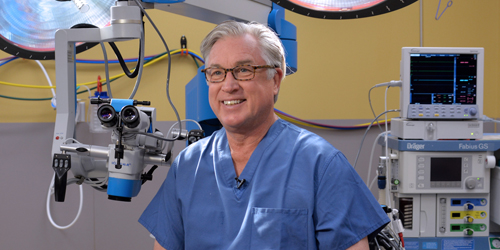
By William Tobler, MD
Most people who undergo elective spine surgery have seen it coming for weeks, months, or even years. They have been in pain or discomfort for an extended period, and they have tried conservative treatments, including physical therapy and injections. They have been patient, hopeful. And now they are ready for a surgical solution to their pain.
This means that most people who are facing the possibility of spine surgery have time to get other aspects of their health in order. The healthier you are going into surgery, the more successful your surgery is likely to be.
My Mayfield colleagues and I have two primary recommendations for patients who are facing spine surgery:
First, become serious about watching your weight.
Being overweight increases your risk of complications and decreases your mobility following surgery. If you have been prescribed a home exercise program by a healthcare provider, continue that program up until your surgery. And be extra cautious of “high-density” foods with a high sugar or fat content.
We know this is easier said than done! When we experience pain, we have a natural tendency to seek out comfort foods that make us feel better. Things like doughnuts, cookies, potato chips, and ice cream. But these foods can be high in calories and can lead to additional weight gain before surgery. If your bad back is keeping you from exercising, you are unlikely to be able to burn off these extra calories.
Think of low-calorie foods and drinks as your friends during this important time period. A hot mug of herbal tea can have a calming influence between meals. A salad with dinner can help fill you up. Frozen grapes, blueberries, or banana slices can serve as a sweet, low-calorie dessert.
Second, if you use tobacco, this is the time to stop.
The most important way to achieve a successful spinal surgery is to quit smoking. All of us at Mayfield urge you to stop all tobacco use: cigarettes, e-cigarettes, cigars, pipes, chewing tobacco, and smokeless tobacco (snuff or dip).
We have scientific evidence that nicotine prevents bone growth and decreases successful fusion. In fact, fusion fails in 40 percent of smokers compared with 8 percent of non-smokers. Smoking also decreases blood circulation, which causes wounds to heal more slowly and increases the risk of infection.
Quitting smoking may be one of the hardest things you have ever tried to do. Getting support from family and friends may be helpful. In addition, we are more than happy to talk to you about nicotine replacements, pills without nicotine (Wellbutrin®, Chantix®), and tobacco counseling programs.
At Mayfield, we want our patients to have the best surgical outcomes possible. Adopting healthy behaviors before surgery maximizes the chances that you – and your surgeon – will be successful.
*****
William Tobler, MD, is a neurosurgeon with Mayfield Brain & Spine and Chair of the
Mayfield Education & Research Foundation.